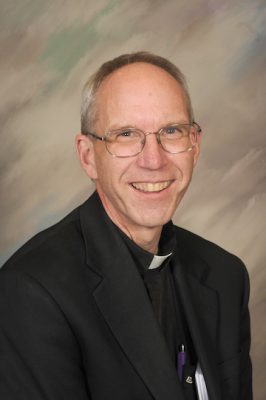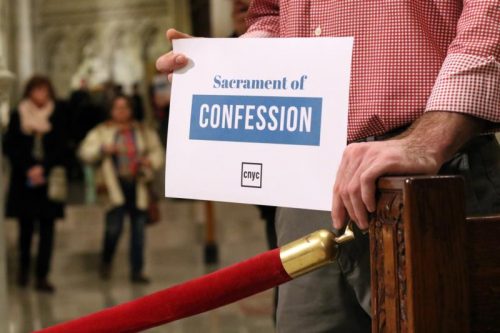Why can’t that man pick up his socks? Can it really be that hard for her to close the door without slamming it? He always has to have the last word. She can’t stop talking about how much better her kids are than anyone else’s.
How often must I forgive? As many as seven times?
Peter’s question to Jesus resounds down the centuries into our troubled world. What place does forgiveness hold, and is there an upper limit where we are justified in pivoting from reconciliation to revenge, from compassion to contempt?

We know the Lord’s answer: not seven times (perhaps Peter sighed in relief) … but seventy-seven times.
For a long time, I envisioned a person suffering the same wrong over and over — seventy-seven insults, or thefts or slanders. However, it is more common that the small things — idiosyncrasies, personality quirks, habits that annoy — get under our skin. These are often not really sins against us, just things that trigger us: pencil-tapping, throat clearing, the way the newspaper is left after reading, the dishes in the sink. Yet, over time, they can build resentments and in unguarded moments burst forth in sarcasm or disproportionate anger as we struggle with (in the words of Pope Benedict) “suffering the otherness of the other.”
Yet, we know that far greater and genuine wrongs happen. Gradually, I came to understand this counsel in another way. Sometimes it is just one incident that so wounds us that the pain, anger, resentment and loss linger, even for years. We try to forgive, to move on, to find healing. But a news story, or a friend’s similar experience, or a song or book or movie triggers the same emotions we thought had been resolved. We feel like the spring has been released and we are pulled right back to ground zero. This renewed experience of remembering and emotional struggle adds another layer to the original pain and holds us captive in its own way to the past.
When Jesus says “seventy-seven times,” he may well refer to this laborious process of gradual healing. The patience to try again to forgive, and again, and again, is itself the work of grace. Perhaps this is the 11th time; or the 35th time; or the 72nd time. Each step on this journey to full forgiveness brings us closer to freedom; but each can be taken only one at a time.
What is true of forgiveness for others is also true for ourselves. Facing our failures and the hurt we have caused others, accepting our imperfection and wounded self-image, while still moving toward healing, is also often a long process.
One of the great obstacles to this healing is confusing forgiving a wrong with condoning it. Forgiveness can seem like a kind of dismissal of the harm, a retroactive permission or approval of something our heart still tells us ought not to have happened. True forgiveness no more condones the past than it can change it; however, it looks to a new future, where the wrongs are part of my history but do not define my identity.
Put another way: it took me a long time to hear clearly the words of absolution I pray so often in the confessional, which say: “I absolve you from your sins.” While that sounds simple enough, it implies a crucial distinction: you are not your sins. These are choices you made; they are not who you are. Forgiveness frees us to be our true selves, with the residue of our past guilt no longer holding us fast. God does not erase our past, but he does redeem it through the cross and resurrection of his son.
Increasingly, the message of forgiveness from Christ breathes into our culture as fresh air from beyond the human sorrows, grudges and divisiveness that is so much a part of our contemporary life. Too often, we think of forgiveness, listening and even respect as signs of weakness, a compromise on some slippery slope that will lead to more trouble. But Jesus teaches us and empowers us with his Spirit to work for peace, healing and a new beginning.
We recognize that we cannot alone take away the problems and wrongs of our world, whether large or small, but we can choose not to add to the suffering around us. By coming to the Healer, we are set free.
Father Tom Knoblach is pastor of three parishes in St. Cloud: Holy Spirit, St. Anthony and St. John Cantius. He also serves as consultant for healthcare ethics for the Diocese of St. Cloud.






















